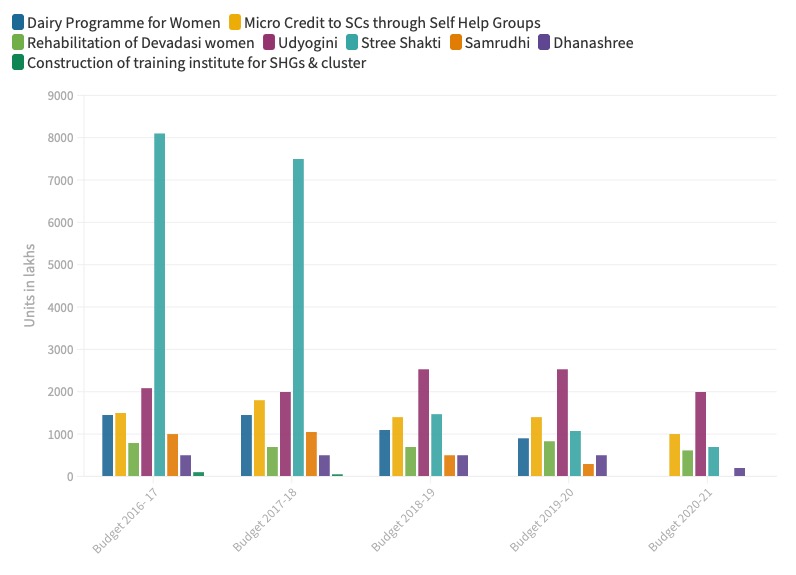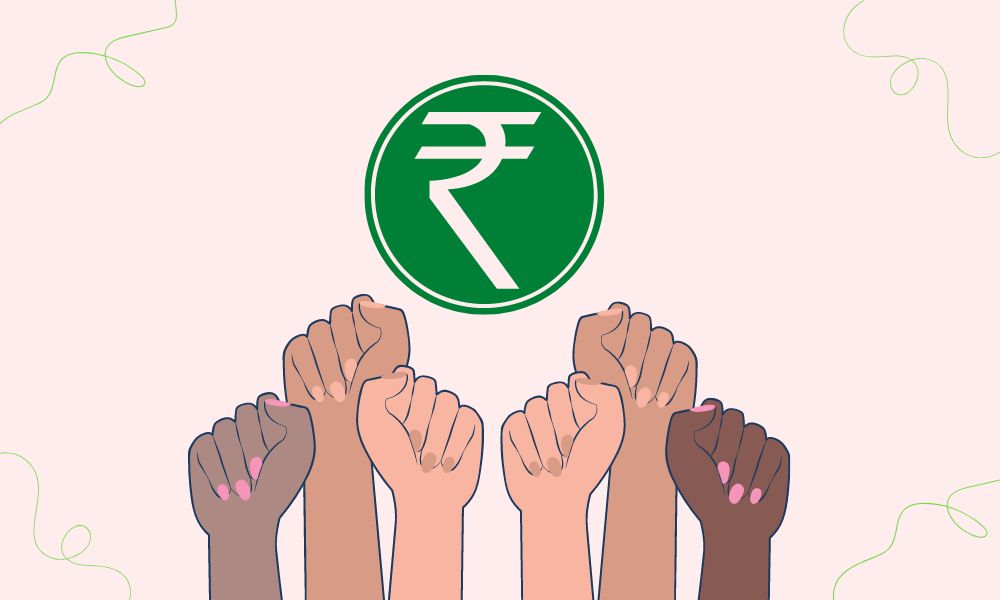Women’s self-help groups in Karnataka turn away from government schemes and instead rely on each other.
Stereotyped. Ignored. Blocked. Some women entrepreneurs of Karnataka have decided to depend only on themselves.
Women Self-Help Groups (SHGs) are stronger than ever before as they mobilize, manage, and support their own group’s as well as other groups’ funding through easy documentation and simple procedure. The lengthy and difficult process of accessing government schemes and failing is not going to hold these women back.
Several women’s SHGs in Karnataka do not depend on government schemes as they are difficult to access. Experts say bureaucracy and corruption pushes women away from entrepreneurial schemes, leading them to depend on other groups and cooperative banks.
A spokesperson from Amman Shakti, a Bengaluru-based women’s SHG, said, “Our group generally only works with other self-help groups. Most groups do that nowadays because it is very hard to get government schemes – there are many criteria and the process is very long. In the time we apply, get reviewed, and receive grants; we can raise loans and begin a project among ourselves.”

The spokesperson added that the traditional roles in society do not allow women to solely focus on fund-raising as managing families cannot be avoided. In terms of that, government schemes are very unfriendly to most women entrepreneurs in the society. She concluded, “It is much easier for us to raise our own funds because the government does not allocate enough budget for all of us and there is always a risk of getting rejected after being reviewed. But if we do it among ourselves, there is no such risk.”
Mr. Suresh from Association for Promoting Social Action (APSA), a Bengaluru-based Non-Government Organisation (NGO), works closely with several women’s SHGs. He says their organisation focuses more on awareness on government schemes than help them avail the schemes. “We mobilise, organise, and train the groups. If they are interested to join government schemes like Stree Shakti or Udyogini Yojana, we inform them about it.”
However he added that when in need of funding, around 70 percent of women’s SHGs depend on other groups and cooperative banks rather than government schemes. “The documentation process for the schemes is lengthy and difficult. Most of the women neither have time nor the freedom to go through that. Also, there is always a risk that even after going through the procedure, they will not get it.”
Mr. Suresh mentioned that women outside Below-Poverty-Line (BPL) families, Scheduled Caste and Scheduled Tribe (SC/ST) and other specific communities often get rejected from the schemes because the allocated amount is not enough for all. “The amount allocated for these schemes, especially for women’s entrepreneurship schemes, is not enough. Before it was not enough, and now it is even less.”
Schemes like the Dairy Programme for Women, Samruddhi, and Construction of Training Institute for SHGs) and cluster received zero budget in Financial year (FY) 2020-21. These schemes are run by the Department of Animal Husbandry and Veterinary Services, and Department of Women and Child Development, respectively.
Moreover, other schemes such as Rehabilitation of Devadasi Women, Training Programme for Women Entrepreneurs through Women’s Development, Udyogini, Stree Shakti, Dhanashree, and multiple other activities influencing women entrepreneurship saw a sharp decline in the budget allocated to them for FY2020-21.
A 2021 report by Government of Karnataka’s Fiscal Policy Institute (FPI) highlights that several women-centric entrepreneurship policies observed a cut down in their funding for FY 2020-21. While Karnataka ranked as the best performer in 2021 States’ Startup Ranking List, it fell much behind West Bengal, Tamil Nadu, and Andhra Pradesh in terms of female entrepreneurial participation in the Ministry of Micro, Small and Medium Enterprises’ annual report of 2020.

Moreover, Mr. Suresh from APSA added that middlemen communicating the scheme between the government and women, pose as obstacles. “If a Rs.1 lakh project is proposed, and the government scheme offers 25 percent subsidy, 50 percent of that is often demanded by the mediators.”
The Interest Subsidy Scheme for Women is one of the few schemes which received four times its allocated budget in the previous year. Bhaskhar Narasimhaiah from the Karnataka State Financial Corporation, which collaborates with the Department of Women and Child Development for the scheme, states that though it has been performing well in technical terms, the situation is not quite so. “We have rolled out the scheme to a lot of women but in very rare cases are the women in charge of the enterprise. Generally, the paperwork is in their name but their male relatives run the businesses,” said Narasimhaiah.



